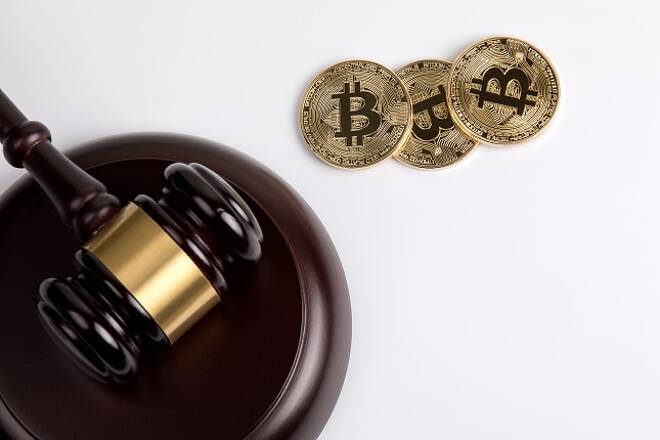Advertisement
Advertisement
Bitfinex “Money Laundering” Couple Gets Different Bail Decision
Updated: Feb 15, 2022, 17:55 GMT+00:00
A federal judge handling the Bitfinex case ruled that the wife can be granted bail while the husband is remanded in jail.
The couple accused of the Bitfinex money laundering had a contrasting lover’s day experience on February 14.
A federal judge ordered that the husband, Ilya Lichtenstein, should remain in jail until trial while the wife, Heather Morgan, was released on a suspended release bond of $3 million.
Wife to be Released on Bail While Husband Remains in Detention
According to the judge, the decision was because Lichtenstein had the resources and intention to flee while Morgan had fulfilled the conditions for bail.
However, a lawyer for the couple reportedly argued that they had no plans to leave the country because of their family ties and future plans.
Both husband and wife stand accused of laundering 119,754 Bitcoins stolen during the Bitfinex hack in 2016. The amount is now worth over $5 billion at the current rates. The US Department of Justice arrested the couple earlier this month, seizing the Bitcoin stack.
The Bitfinex scam dates to 2016, when the Hong Kong-based exchange lost 119,756 Bitcoins to hackers. The tokens were worth $72 million at that time. But it was impossible to cash out the stolen cryptocurrency due to every exchange blacklisting the hackers’ addresses.
The nature of blockchain made the tokens traceable even if they were transferred to other wallets.
The Couple Tried to Launder Funds Through NFTs and Walmart Gift Cards
After several years, someone started moving Bitcoin from the hackers’ wallets to other wallets in August 2021. Over $760 million worth of Bitcoin was moved, putting authorities on red alert. US authorities traced the transactions to wallets controlled by the couple.
After moving the money to their wallets, the couple started laundering it through various means such as buying NFTs, gold, and even getting a $500 Walmart gift card. They used privacy coin Monero, darknet marketplaces, and even split transactions into smaller pieces to further cloak their actions.
But it was impossible to hide such transactions on the blockchain as the DOJ quickly observed a pattern. In its investigations, the DOJ discovered over 2000 wallet addresses and private keys on Lichtenstein cloud storage.
It appears that this evidence was enough to convince the judge that there’s a smoking gun.
Even though the duo lawyer tried to argue that the DOJ case was flimsy and premised on indirect evidence, the judge agreed with the prosecution’s argument that finding crypto wallets and private keys linked to the funds is substantial evidence.
However, there’s no evidence of whether the couple was behind the hack or just helping others move the money. A trial is likely to reveal more information about the crime and the actual masterminds.
Bitfinex revealed that it’s working with the DOJ to establish its right to the funds and reclaim the stolen funds.
About the Author
Oluwapelumi Adejumoauthor
Oluwapelumi is a firm believer in the transformative power power Bitcoin and Blockchain industry holds. He is interested in sharing knowledge and ideas about how the industry could play a pivotal role in the emerging financial system. When he is not writing, he is looking to meet new people and trying out new things.
Advertisement
